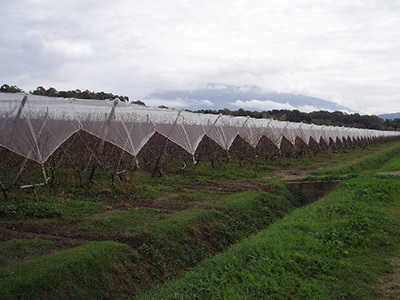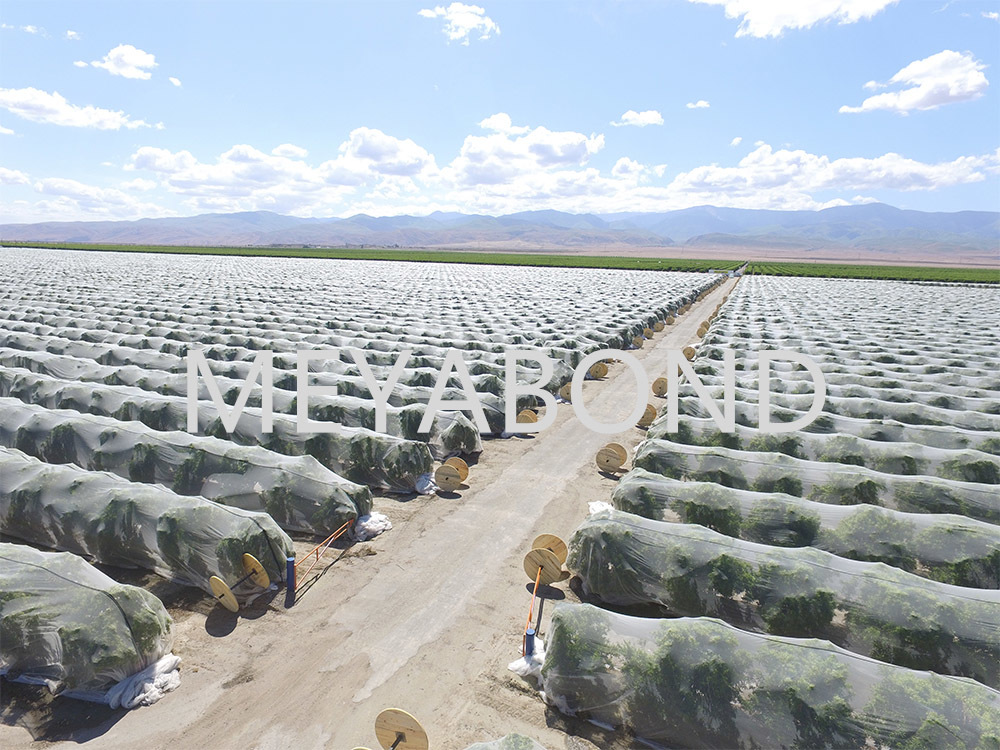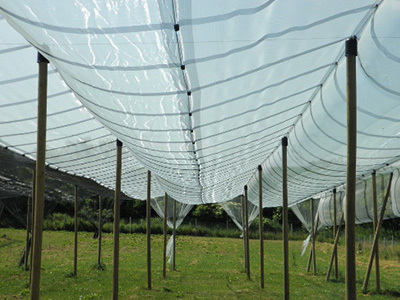Insect Proof Net Solutions: Safeguarding Your Greenhouse for Optimal Crop Health
Insect Proof Net Solutions: Safeguarding Your Greenhouse
Understanding the Need for Insect Proof Nets in Greenhouses
Greenhouses play a crucial role in modern agriculture, providing controlled environments for optimal crop growth. However, these environments can also attract various pests that threaten the health and productivity of plants. Insect proof nets have emerged as a vital solution to protect greenhouses from harmful insects. By creating a barrier, these nets not only safeguard crops but also contribute to sustainable farming practices.
The Role of Insect Proof Nets in Enhancing Crop Health
Investing in insect proof nets is not just about pest control; it's about ensuring the overall health of your crops. These nets allow for air and sunlight to penetrate while keeping unwanted insects at bay. This balance is essential for crop growth and can lead to higher yields. Furthermore, using nets reduces the need for chemical pesticides, promoting an eco-friendly approach to agriculture.
Types of Insect Proof Nets Available
There is a variety of insect proof nets available, each designed for specific needs. Understanding these options can help farmers choose the best fit for their greenhouse.
1. Polyethylene Insect Nets
Polyethylene nets are lightweight and durable, making them an excellent choice for greenhouses. They come in various mesh sizes, allowing flexibility in controlling the types of insects being excluded. These nets are also UV-resistant, ensuring longevity in outdoor conditions.
2. Knitted Insect Screens
Knitted insect screens provide superior ventilation while effectively blocking out pests. Made from high-density polyethylene, these screens are robust and resistant to tearing. Their design allows for easy installation and maintenance, making them a preferred choice for many greenhouse operators.
3. Fine Mesh Insect Nets
Fine mesh nets are perfect for protecting against smaller pests such as aphids and spider mites. These nets are designed with very small openings, ensuring that even the tiniest insects cannot penetrate the barrier. They are particularly beneficial in regions with high pest populations.
4. Anti-UV Nets
Anti-UV nets offer protection not only from insects but also from harmful UV rays. These nets are designed to minimize sun exposure, preventing excessive heat build-up in the greenhouse. This feature is especially important in hot climates where crop stress can occur due to overheating.
Benefits of Using Insect Proof Nets in Greenhouses
The benefits of implementing insect proof nets in your greenhouse extend beyond pest management. Here are some key advantages:
1. Improved Air Circulation
Insect proof nets allow for optimal air circulation within the greenhouse. This circulation helps maintain an even temperature and humidity level, which is crucial for plant health.
2. Reduced Chemical Use
By effectively blocking pests, insect proof nets can significantly reduce the reliance on chemical pesticides. This not only lowers production costs but also contributes to a healthier ecosystem.
3. Enhanced Crop Quality
Crops grown in protected environments tend to be healthier and of higher quality. Insect proof nets help minimize damage from pests, allowing plants to thrive without stress. This ultimately leads to better marketable produce.
4. Cost-Efficiency
While there is an initial investment in purchasing and installing insect proof nets, the long-term savings can be substantial. Reduced losses from pest damage and lower pesticide costs can lead to increased profitability.
How to Choose the Right Insect Proof Net for Your Greenhouse
Selecting the right insect proof net involves considering several factors, including:
1. Mesh Size
The mesh size is critical in determining which pests can be excluded. Farmers must evaluate the common pest threats in their region and select nets that effectively block those insects.
2. Material Durability
Choosing a robust material is essential for long-term use. High-quality polyethylene or knitted fabrics offer durability and resistance against environmental factors such as wind and UV exposure.
3. Installation and Maintenance
Ease of installation can significantly affect how quickly a farmer can implement pest management strategies. Look for nets that come with clear installation guidelines and require minimal maintenance.
4. Climate Considerations
The local climate plays a pivotal role in the effectiveness of insect proof nets. In hotter climates, anti-UV nets may be more beneficial, while cooler climates may require nets with smaller openings to prevent heat loss.
Installation Tips for Insect Proof Nets in Greenhouses
Proper installation of insect proof nets is crucial for ensuring their effectiveness. Here are some key tips to consider:
1. Measure Accurately
Before purchasing nets, measure the greenhouse dimensions accurately. This ensures that the nets fit well without gaps that could allow pests to enter.
2. Secure All Edges
When installing the nets, ensure that all edges are securely fastened. Use clips, weights, or adhesive strips to hold the nets in place and prevent any openings.
3. Regular Inspections
Conduct regular inspections to check for any damage to the nets. Prompt repairs can prevent potential pest invasions and maintain crop protection.
4. Seasonal Adjustments
Depending on the season, adjustments may be necessary. For instance, during peak pest seasons, you may want to ensure that the nets are not only installed but also checked for any possible gaps or wear.
Real-Life Success Stories: Greenhouses Thriving with Insect Proof Nets
Numerous greenhouse operators have reported significant improvements in crop yields and quality after implementing insect proof nets. Here are a few examples:
1. Tomato Grower in California
A tomato grower in California faced severe pest issues, impacting yield and quality. After installing polyethylene insect nets, the farmer observed a 30% increase in yield over the next growing season. Additionally, the reduction in pesticide use led to healthier produce and lower costs.
2. Flower Nursery in Florida
A flower nursery in Florida installed fine mesh insect nets to protect delicate blooms from aphids. The result was a notable decrease in pest-related damage, allowing the nursery to expand its market reach and increase sales.
3. Organic Vegetable Farm in Oregon
An organic vegetable farm implemented knitted insect screens to maintain its pesticide-free status. The farm reported improved plant health and resilience against pests, leading to a more sustainable production model.
FAQs About Insect Proof Nets for Greenhouses
1. How effective are insect proof nets against pests?
Insect proof nets are highly effective at preventing a wide range of pests from accessing your crops. The effectiveness depends on the mesh size and the type of pests commonly found in your area.
2. Can I use insect proof nets in combination with other pest control methods?
Yes, insect proof nets can be used alongside other pest control strategies, such as biological control and organic insecticides, for enhanced protection.
3. How long do insect proof nets last?
The lifespan of insect proof nets varies based on the material and environmental conditions. Generally, high-quality nets can last several years with proper maintenance.
4. Do insect proof nets affect pollination?
Insect proof nets can hinder some pollinators. However, using nets with larger openings or strategically placed openings can allow beneficial insects to access the plants.
5. How do I clean insect proof nets?
Cleaning insect proof nets is relatively simple. Use a soft brush or cloth and mild soap to remove debris. Avoid harsh chemicals that could degrade the net material.
Conclusion
Insect proof nets are essential tools in modern greenhouse management, providing effective solutions for pest control and contributing to the overall health of crops. By understanding the various types of nets available, their benefits, and best installation practices, greenhouse operators can protect their investments while promoting sustainable agricultural practices. Embracing these solutions not only enhances crop quality and yield but also paves the way for a healthier farming ecosystem. Investing in insect proof nets is an investment in the future of successful greenhouse farming.
Key words:
Related News
CONTACT US
Email: sales8@meyabond.com
Tel: +8618911966213
No.3 Yard, ZhongHe Road, 100071,FengTai District, Beijing, China
Email: sales8@meyabond.com
Tel: +8618911966213
No.3 Yard, ZhongHe Road, 100071,FengTai District, Beijing, China
















